Happy New Year everyone!
Edinburgh by Alexander Chee (Books 2023, 27) 📚
Back in 2021, when I read Chee’s How to Write an Autobiographical Novel, I expressed an interest in this book, Edinburgh, largely because of its title. As I said then, ‘the Edinburgh connection in the novel didn’t survive the writing and editing process, but he kept the title anyway.’ There is, in fact, a tangential character in this who has a loose connection to the city, but it’s not relevant.
What we have is a bildungsroman, the story of a boy becoming a man, knowing he’s gay from an early age, and going through various experiences both because of that fact and having nothing to do with it.
But about halfway through, the first-person narrative switches to a different character’s first-person narrative, which caused me some confusion. The sections are headed with the name of the narrator, but since there is only this one change, then a change back for the last quarter, it wasn’t immediately obvious what was going on.
That was OK though. What I didn’t enjoy so much was a kind of allusiveness that really became vagueness, which at times made it slightly hard to see what he was getting at. Especially in the last quarter.
And that last quarter is the most difficult and problematic part of the whole. See, early on, the first narrator is abused, along with several classmates, by a teacher. This doesn’t seem to have much effect on the narrator, though it does on some of the other victims.
But in the end the main narrator becomes an abuser himself; of the other narrator, who is linked to the whole story in a way that is, frankly, too coincidental. And it all ends in a kind of unresolved ambiguity which I found left a bad taste.
All in all, I preferred his nonfiction.
Hackney Christmas lights
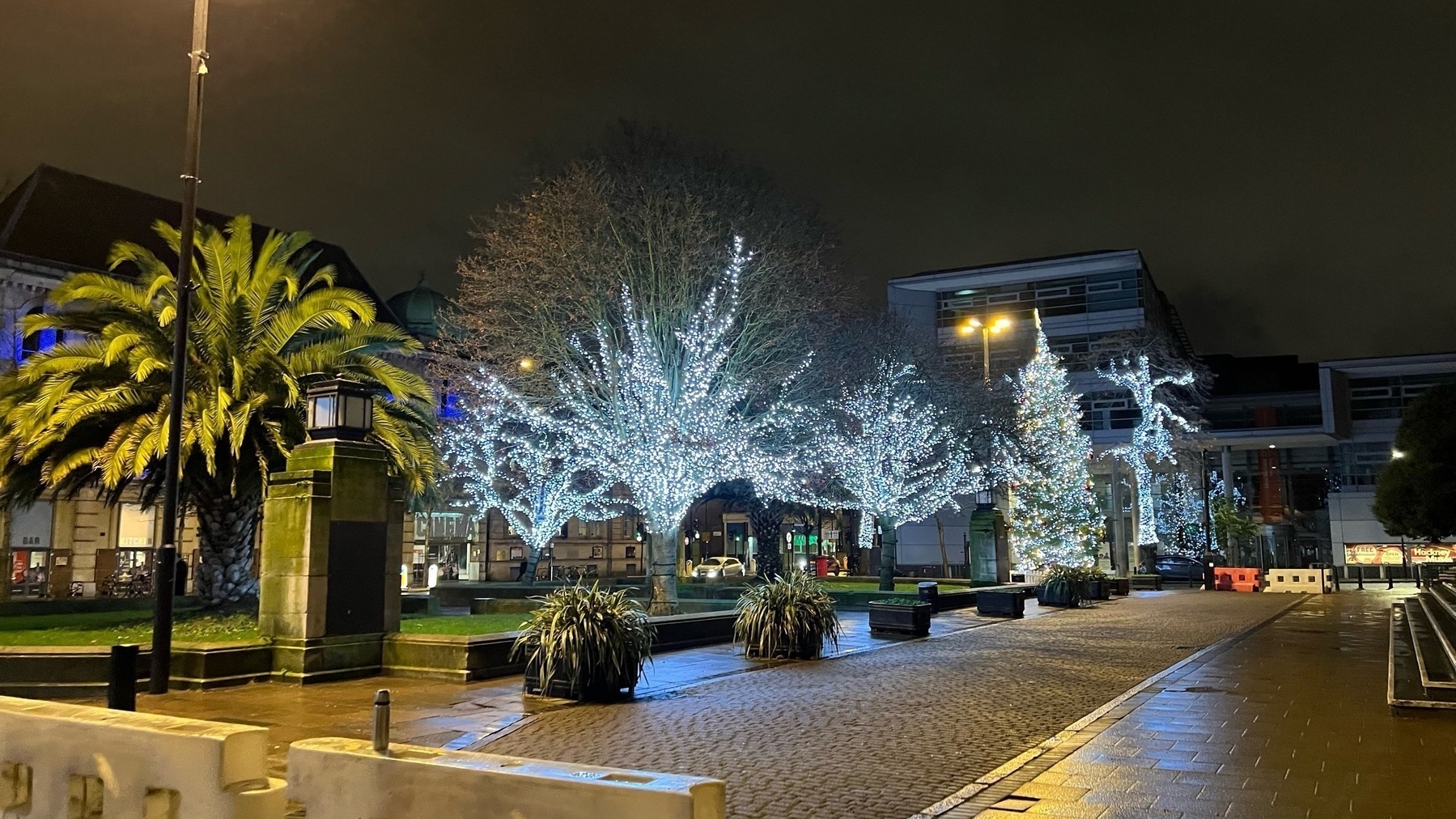
Saltburn, 2023 - ★★½ (contains spoilers)
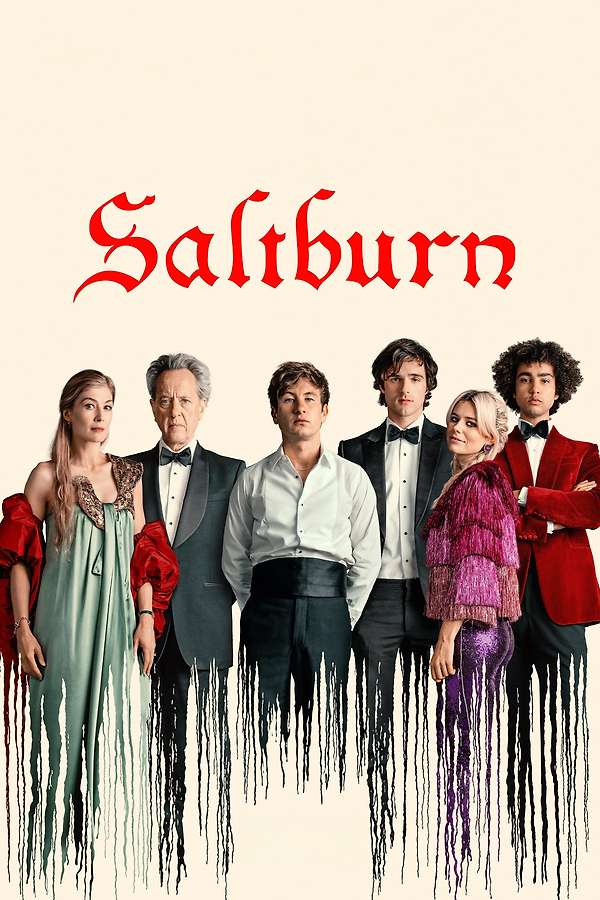
This review may contain spoilers.
It's unusual to go in to see a film with essentially no idea of what it's about. Unusual, but sometimes quite a good way to approach something. I think I had read something to the effect that someone was invited to someone's country home. But as far as that, I knew nothing about this, going into the cinema today.
Except, maybe, that there was some major surprise twist or reversal.
There are, in fact, no surprises in this.
Or let's say, I found nothing particularly surprising in it.
I enjoyed it, and had a good conversation about it afterwards. But it would have been better — the conversation afterwards in particular — if the the first twenty minutes and the last five were shaved off.
The first twenty minutes because, we know: Oxford is shit if you have no friends and no money; and it's better if you have both. We don't need it explained in elaborate detail.
Or maybe that's not so obvious. I have some insider knowledge there.
But the last five or so minutes. I mean, really? Do you have to explain everything? Spell everything out in minute detail? Confirm that every possible thing that we thought might have happened — but that was, until now, pleasingly ambiguous — had actually happened?
I feel like the ending was focus-grouped to death; a few people didn't understand, so they dropped in some tiny flashbacks. Yes, he was that manipulative. I had suspected that from about forty minutes in, and my suspicions only increased. But I'd rather have had them left as suspicions.
All that said, I enjoyed this a lot. I just feel I could have enjoyed it a lot more.
Murder on the Orient Express by Agatha Christie (Books 2023, 26) 📚
The first Christmas-present book, finished on boxing day. Short, and a page-turner.
I’ve never read an Agatha Christie before, perhaps surprisingly. I’m not even sure I’ve seen any significant adaptation, except I once caught the end of one. Of this novel, unfortunately. So I sort of knew what the conclusion was, which meant I was seeing how the clues pointed in that direction.
No matter, it’s still a great read, and makes me want to read more.
Nine to Five, 1980 - ★★★★
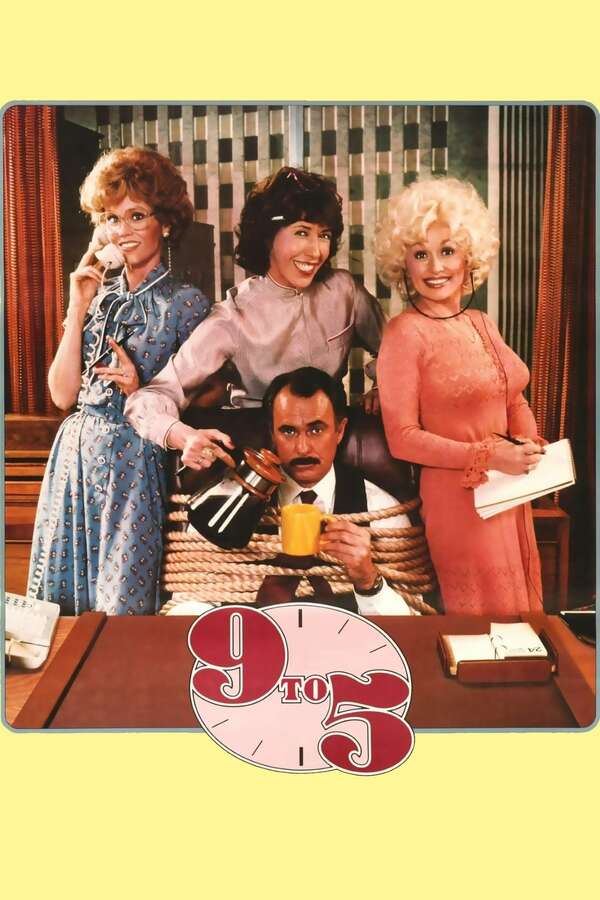
I don't know why I didn't see this back in the day. It's a mad romp, and a deeply feminist one. Full of surprising stylistic switches, dream sequences…
Highly recommended.
The Holiday, 2006 - ★★★
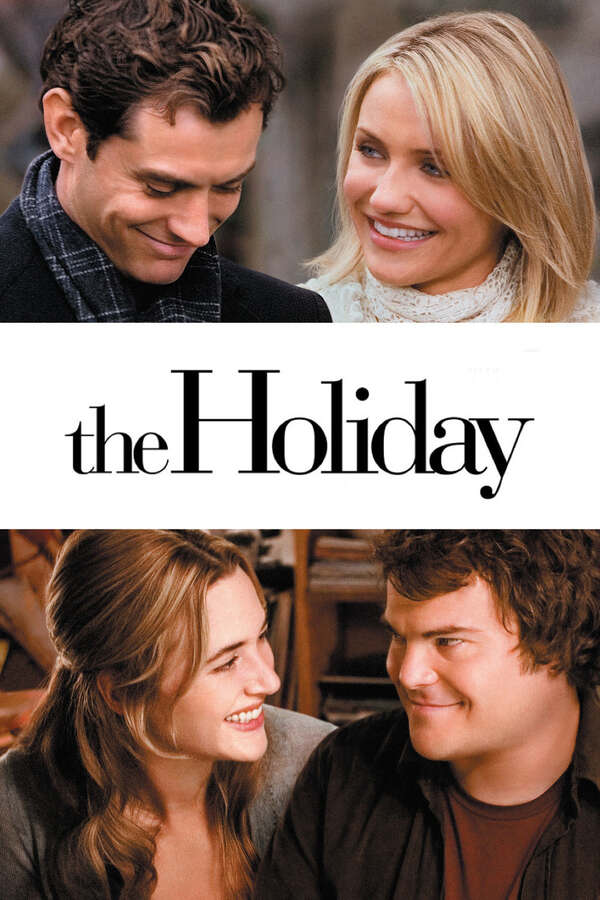
I've watched this before, but it looks like I forgot to log it on Letterboxd. Fun Christmas romcom. Does exactly what you expect it to.
What the hell is this shit? Tried to open a link at CNN and I get this response, in Safari, Firefox and Chrome. Brave? I don’t even have it installed!

Who Do You Think You Both Are?
I suppose I should tell you what I thought of the three Doctor Who 60th anniversary specials.
They were good. Not great, but good. My favourite of the three — and I think probably the best, too — was the middle one, ‘Wild Blue Yonder’.
As to the ending, the ‘bi-generation’ thing was daft, but fun. It was good to give the leaving and arriving Doctors the chance to interact, and a Doctor ending without it being a death was good.
However, let us speak of the extension of that effect, as explained in this Radio Times article. I was directed there by @BenSouthwood, via a conversation on Micro.blog.
As I said there, I loved the idea of the Timeless Child, and the expansion it brought to The Doctor’s past and the prehistory of the Time Lords. But this ‘every Doctor is now bi-generated’ idea just seems like it leaves things in a mess.
Sure, you can explain it all away with branching timelines, alternative realities and all that. But it all just seems a bit too chaotic, you know? Even if they never use it, it feels unnecessary.
And then there’s this idea of making an expanded ‘Whoniverse’, in the vein of what Marvel and Star Wars have become. Disney’s money is going to allow this, presumably. More shows, even, than when we had Torchwood and The Sarah Jane Adventures.
Trouble is, from my point of view, that I’ve lost interest in both Star Wars and Marvel exactly because there’s so much stuff. It’s all just too much.
So I hope my favourite programme doesn’t go the same way. Or at least, if it does, that the original programme will always remain at the hearts of the franchise, and not depend on any of the expansion packs.
The Running Grave by Robert Galbraith (Books 2023, 25) 📚
A reread so soon? Hell, yes, why not? I think I enjoyed it even more this time. It’s amazing how compelling a book can still be on a reread.
I’m watching Shane MacGowan’s funeral on YouTube, and loving how it seems totally chaotic. Like a Pogues gig. ‘Nick’s going to lead us in “A Rainy Night in Soho”,’ says the priest. ‘Oh, no, this is live, and Nick’s been delayed.’
Nick Cave, that is.
Pity the sound is complete mince.
To a first approximation it takes me all day to bake the Christmas cake. To be fair, I had to go out and get unsalted butter, and 4½ hours of that was just letting it be in the oven. But here it is now, cooling on the rack.
Speaking of letting it be, it must be about time to watch Get Back again.

The Affirmation by Christopher Priest (Books 2023, 24) 📚
I’ve had this book for years, and I thought I had read it. Took a look at it a week or two back and realised I hadn’t. So I did.
What I also didn’t realise was that it’s a Dream Archipelago story. Which is surprising, since it starts in present-day (1980s) London. In fact it’s the first novel (though not, I think, the first story) to use the Dream Archipelago as a setting, or state of mind.
Peter Sinclair suffers various crises in his personal life, and decides to write an autobiography to better understand himself. Through various revisions his writing becomes more fictionalised, until he’s writing about the islands. Or living in them. Is it alternative world or madness? Portal fantasy or mental breakdown?
Or maybe both, or neither. You could argue that as a story it doesn’t entirely make sense, but I don’t think I’d go there. I mean, I’d go there, to the Archipelago, for sure (it feels a lot like Greece to me, and indeed Sinclair and his ex/not-ex girlfriend met there, we are told).
It’s a novel that leaves you questioning its realities, and maybe your own. And that seems like a good thing to me.
… And Took the Road for Heaven in the Morning
In a way it was surprising that Shane MacGowan survived this long, considering his noted and dramatic habits. But it’s still sad that he’s died.
I count The Pogues as one of the bands I’ve seen live most of all. The only other one that comes close would be The Fall, and either could be the winner. Goes back to 1985, either way.
The Pogues were vey much a band of supremely talented musicians and songwriters. But Shane was the driving force. What they did was to meld punk with Irish folk music. The former, of course had helped me through my adolescent years and would remain a lifelong love. The latter: well, I came from a Scottish Catholic background, so it was pretty familiar, between Scottish folk and Irish songs sung at Celtic matches.
So on the instant that I first heard them — certainly on Peel, and probably ‘Sally MacLennane’, I’d say — they clicked. There was no learning curve, no adjustment to this new sound. It was just there, it belonged, as if it had always existed.
The Pogues may have been inevitable, but Shane was a genius. And his songs, as I wrote when Phil Chevron died were steeped in death imagery.
I’ll leave you with a couple of excellent screen grabs from Twitter (where, just to note, as I write, ‘Sodomy and the Lash’ is trending under a ‘food’ heading, which is just beyond weird.
First, this excellent mashups of the day’s deaths of noted figures:
And this typically topical ‘Fairytale’ reference (even if it does misspell his surname):
So it goes.
8½, 1963 - ★★★
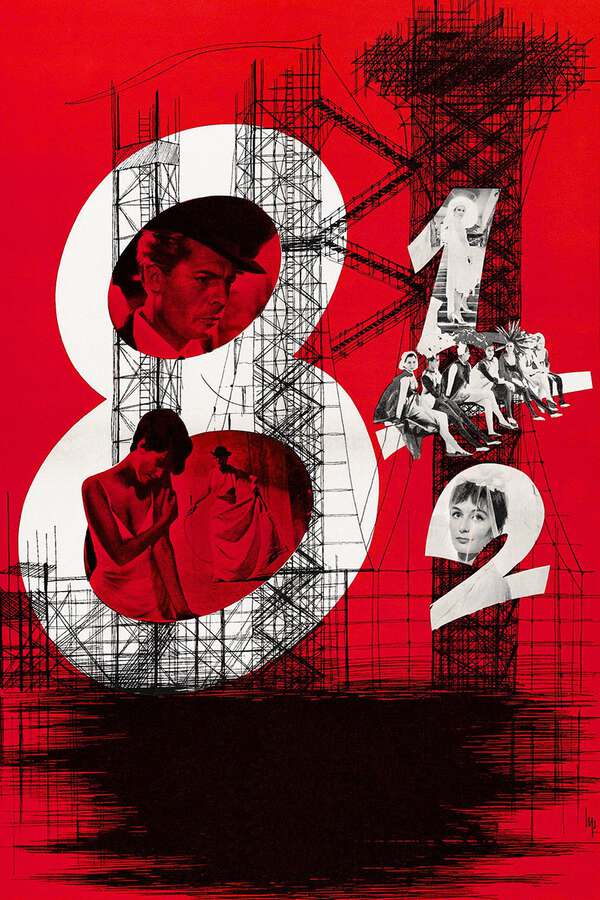
Fellini's 8½ is a weird, fragmentary, confusing, semi-autobiographical piece about a filmmaker who's trying to make a movie and is creatively blocked.
People come and go, scenes change almost at random, none of it really makes sense. And yet, in a weird and surprisingly charming kind of way it all does.
And it's one of those classics where you can see hints of the things or people it inspired. Most notably for me, David Lynch. I feel like he must have mainlined this.
Wordle 890 2/6*
⬛🟨⬛⬛🟨
🟩🟩🟩🟩🟩
Extreme rarity of Wordle in 2!
To Kill a Mockingbird by Harper Lee (Books 2023, 23)📚
Why did nobody ever tell me that this book is funny? I had it in my head as a slightly worthy, if much-loved, courtroom drama. But the trial is only part of it, and quite small part at that. Though its ramifications play out to the end, and echo back to near the start.
Scout is an endearing narrator, wise beyond her years, tough, smart. Lee conjures a believable, well-formed picture of life in small-town Alabama in the thirties. A place of community and friendship, gossip and criticism, poverty and hard work. And a few people, notably Atticus, of course, willing to do the right thing in the face of dangerous racist neighbours.
It’s intriguing, from a writer’s perspective, how the narrative voice changes in the courtroom scenes when they do come.
And Boo Radley gave the band their name. I don’t think I knew that, or if I did I’d forgotten.
You don’t need me to tell you it’s a classic, and it turns out, for good reason.
All About Eve, 1950 - ★★★½
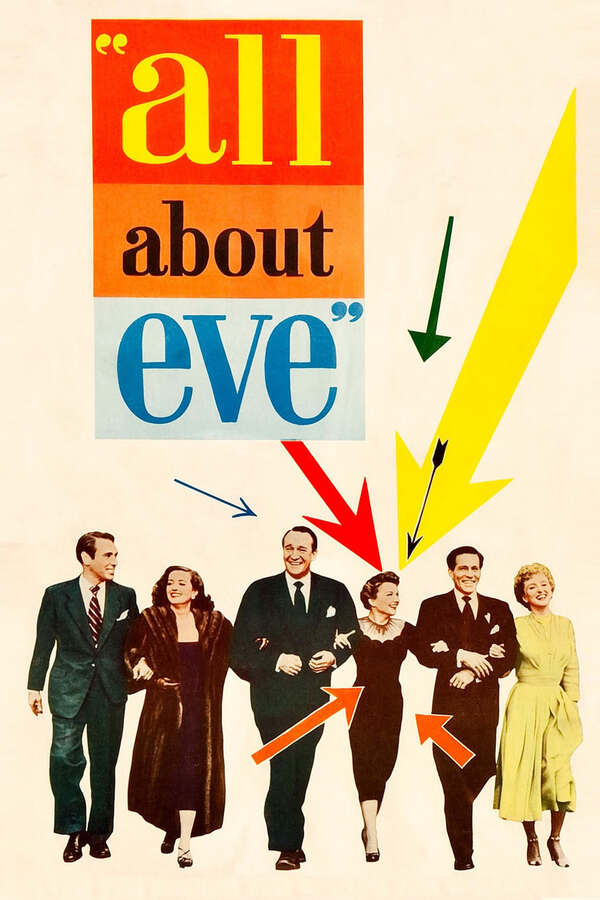
Not dissimilar in themes to the various A Star is Born instances we've been watching, in that it's partly about fame and performance.
A successful stage actor is not-quite-stalked by a fan, the titular Eve, who then becomes her personal assistant, and gradually moves almost to replace her.
Which makes Eve sounds more sinister than she comes across in the film.
And despite the title, it's really more about Margo than it is about Eve.
BBC 6 Music DJ: ‘We’ve set up a deck in the studio so we can play you some vinyl directly, instead of having to digitise it.’ Then he has to run across the room to where the turntable is.
The sound you hear is not the turntable spinning, but John Peel doing so in his grave.
Sarah Canary by Karen Joy Fowler (Books 2023, 22) 📚
There is no evidence in the text of this book that it is SF. Yet here I have a copy, published in the SF Masterworks series.
Graham Sleight addresses this in his introduction, but doesn’t try to give a conclusive reading either. There is no definitive answer, as the work is deliberately ambiguous.
The titular Sarah is a woman described as ‘ugly’ who turns up in the camp of some Chinese men who are working on railroads in the USA of the 1870s. She speaks no known human language, though she does make sounds. She gains her name later because, a character says, ‘she sings like an angel’. One of the men, a young man called Chin, is volunteered to try to find where she belongs, or failing that, at least get rid of her, so she stops distracting them.
So begins a trek across the Pacific Northwest and beyond. Along the ways we meet various characters with various good and bad qualities.
The ending is, as I say, ambiguous. We never find out who or what Sarah Canary is. But the journey is quite enjoyable.

